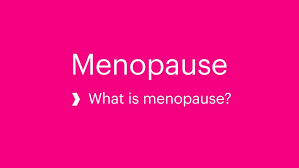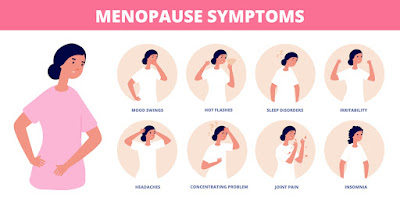
Menopause is a natural biological process that marks the end of a woman’s reproductive years. While it is a universal experience for women, the way menopause is experienced and perceived can vary greatly depending on physical, emotional, and psychological factors. Beyond the physical symptoms, menopause can bring about profound changes in a woman’s sense of self and emotional well-being. In this article, we’ll explore the physiological aspects of menopause, its psychological effects, and how women can embrace this transformative phase of life.
What is Menopause?

Menopause typically occurs between the ages of 45 and 55, with the average age being 51. It is officially diagnosed when a woman has gone 12 consecutive months without a menstrual period. This transition usually occurs in three stages:
- Perimenopause: The years leading up to menopause, when hormone levels begin to fluctuate.
- Menopause: The point when the ovaries stop releasing eggs and menstrual cycles cease.
- Postmenopause: The years following menopause, when symptoms may ease but long-term health risks like bone loss can emerge.
Physical Symptoms of Menopause
The symptoms of menopause are primarily driven by declining levels of estrogen and progesterone. Common physical changes include:
- Hot Flashes and Night Sweats: Sudden waves of heat that can disrupt sleep and daily life.
- Irregular Periods: Changes in the frequency and flow of menstrual cycles.
- Sleep Disturbances: Difficulty falling or staying asleep.
- Weight Gain: Slowed metabolism and changes in body composition.
- Vaginal Dryness: Discomfort during intercourse due to reduced lubrication.
- Bone and Joint Pain: Increased risk of osteoporosis due to decreased estrogen levels.
Psychological and Emotional Impact of Menopause
Menopause doesn’t just affect the body—it also has a significant impact on a woman’s mental and emotional state. These changes can be shaped by both hormonal shifts and societal attitudes toward aging.
1. Emotional Turbulence
- Fluctuating hormones can lead to mood swings, anxiety, and irritability.
- Many women report feelings of sadness or a sense of loss as they transition away from their reproductive years.
2. Identity and Self-Worth
- For some, menopause signals the end of fertility, which can affect their sense of femininity or purpose, particularly in cultures that place high value on youth and reproduction.
- Conversely, others view it as a liberation from the monthly cycle and the fear of unplanned pregnancies.
3. Anxiety About Aging
- Menopause is often accompanied by visible signs of aging, such as wrinkles or graying hair.
- Societal pressures to remain youthful can exacerbate feelings of inadequacy or self-doubt.
4. Cognitive Changes
- "Brain fog," forgetfulness, and difficulty concentrating are common complaints during menopause, often leading to frustration or concern about long-term cognitive health.
Embracing Menopause: A Psychological Shift
While menopause is often seen as a challenging phase, it can also be an opportunity for personal growth and self-discovery.
1. Reframing the Narrative
- Menopause can be seen as a natural progression, not an end. It’s a chance to embrace wisdom, independence, and new opportunities.
- Some women report feeling more confident and assertive as they enter this phase of life.
2. Building Emotional Resilience
- Practicing mindfulness, meditation, or yoga can help manage stress and improve emotional balance.
- Seeking therapy or joining support groups can provide a safe space to share experiences and learn coping strategies.
3. Focusing on Holistic Health
- Regular exercise, a balanced diet, and sufficient sleep can alleviate many physical and psychological symptoms.
- Taking time for self-care fosters a positive mindset and helps combat feelings of inadequacy or loss.
Menopause and Relationships
The emotional and physical changes of menopause can impact personal relationships, particularly with partners. Open communication is crucial:
- With Partners: Discussing symptoms and their effects can foster understanding and intimacy.
- With Friends and Family: Sharing experiences with other women who are going through or have gone through menopause can be validating and empowering.
Breaking the Stigma Around Menopause
In many cultures, menopause is shrouded in silence or seen as a decline in a woman’s value. Breaking these stereotypes involves:
- Education: Understanding menopause as a natural biological process, not a "deficiency" or "disease."
- Empowerment: Celebrating the wisdom and freedom that come with this phase of life.
- Advocacy: Encouraging open conversations about menopause in workplaces and communities to normalize the experience.
FAQs About Menopause
1. How long does menopause last?
The transition can last anywhere from 4-8 years. Symptoms often begin during perimenopause and may persist for several years after menopause.
2. Can menopause affect mental health?
Yes, hormonal fluctuations can contribute to mood swings, anxiety, and depression. Seeking support and maintaining a healthy lifestyle can help.
3. Are hot flashes normal?
Hot flashes are one of the most common symptoms of menopause, affecting up to 75% of women. They typically improve over time.
4. Can I manage menopause without hormones?
Yes, lifestyle changes, herbal remedies, and alternative therapies like acupuncture can help alleviate symptoms. However, consult a healthcare provider for tailored advice.
5. Is menopause the same for everyone?
No, the experience varies widely. Genetics, lifestyle, and overall health all influence how menopause is experienced.
Conclusion
Menopause is a significant milestone in a woman’s life, marked by both challenges and opportunities. By understanding its physical and psychological effects, women can take proactive steps to navigate this phase with grace and resilience. Whether through lifestyle changes, seeking support, or simply embracing the wisdom that comes with age, menopause can be a time of growth and empowerment.
Remember, menopause isn’t the end of anything—it’s the beginning of a new chapter filled with possibilities.

